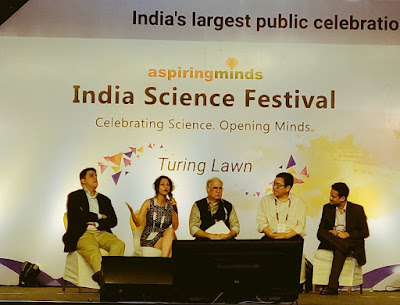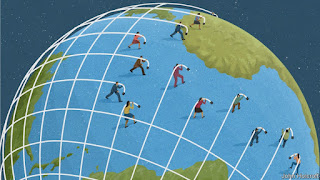Does culture matter? Business practices across the Netherlands and Middle East
A few months ago I was contacted by the Netherlands Institute of Beirut to see if I would be interested in talking about culture and business in the Middle East. This is part of their upcoming initiative to create bridges between the Middle East and the Netherlands, starting within an academic setting. Part of this commendable drive it seems to me is a response against this growing Islamophobia within Europe which is of course deeply troubling. What better way than to engage the youth across these borders in areas of common interest. I like the idea that instead of going there to be preachy about intercultural harmony and respect, that we choose a topic that the youth are genuinely engaged with and from there see how culture actually matters. So of course it’s of little surprise that the topic that youth in the Middle East seem to be interested in is that of business, social media and globalization. And for good reason. Like other young people across the globe, I believe they are more concerned about how to shape their identities online and are striving to capitalize on these new digital platforms to create collaborations and sustain relationships. Perhaps some of them want to embrace entrepreneurship and experiment with their ideas online given that they’re entering an economy that has little to offer them and instead of chasing unpaid internships indefinitely and pricy master and doctoral degrees, perhaps they can be drivers of their own fate.
But of course it’s worth communicating ones skepticism about overplaying the role of social media in this process. Much like the over hyped role of twitter in the jasmine revolution, I definitely do not want to communicate that this is their digital ticket to liberation and freedom from the current economic plight. More importantly, I do not want to get stuck with exhausting notions of culture as nation bound which is common when one is doing a “bridging” of cultures where on either end of the spectrum lies the Middle East and the Netherlands. Before you know it, we often get ourselves wrapped up with the typical discourses on religion and values and social customs, exoticizing the other and walking away with a reaffirmation of difference rather than commonality.
On the other hand, one does not want to discount it completely. So I was very excited to see the Economist article on the Magic of Diasporas where it talks about how the youth from emerging markets are leveraging on these digital platforms to circulate ideas and connections that foster trust and propels business opportunities. The bottom line here is that the migrant is not a dirty word and that current protectionist policy is doing more damage within borders by blocking flows of people (and thereby fresh thinking) from different cultures. It talks about how crossing real and virtual geographies enables creativity that is essential to staying ahead in the game. We need to shift from our monocultural outlook and comfort zone, allowing us to view the typical as something that could be exotic again. I liked the way it framed geographies of diasporas over nationhood, geographies of innovation and networks over the usual notions of class and culture. Anyway, I digress...
So when I first started to prepare for these workshops at the University of Jordan and St. Josephs in Beirut, it started with a couple of innocent workshops with students. Now its grown to conducting workshops with the Leaders of Tomorrow, a non profit for the youth at the King Hussain Cultural Centre in Amman to the Chambers of Commerce in Beirut where I'll be addressing mainly business people from Lebanon. I am keenly aware of my dearth of knowledge of their context and their current practices. But that said, I believe that my vagabond lifestyle of moving from India to San Francisco to Boston to New York and now the Netherlands may be of some interest as well as the fact that I shifted careers quite dramatically and have leveraged on multiple social media platforms in my work and personal life to move ahead. I hope that by personalizing this talk and drawing from my range of cross cultural experiences in work and my private life, and providing ample opportunities for them to share theirs, we'll be able to jointly see what these bridges can look like…less nationalistic I hope and more about reproduced social practice that is shaped through certain policies and politics. Looking forward to this adventure...





Comments
Post a Comment